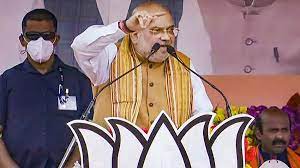OMCs may consider a reduction of ₹5- ₹10 per litre in petrol and diesel rates after the release of Q3 results
State-run oil companies could consider reducing the prices of petrol and diesel next month after they release their third quarter results, which are likely to show their net profits together surpass a record ₹75,000 crore even as their costs of acquiring crude oil soften, three people aware of the matter have said.
The public sector fuel retailers have held prices since April, 2022, and officials say a thorough pricing review is imminent, with the companies possibly sitting on margins of ₹10 per litre that can be passed on to consumers. The move could help soothe inflation and become significant ahead of the 2024 General Elections.
“Due to higher marketing margin on sale of fuels, the three OMCs (oil marketing companies) posted significant net profit in Q1 and Q2 [of FY2023-24] and the trend will continue in Q3. After results by the end of this month, they may consider reducing petrol and diesel rates between ₹5 and ₹10 a litre, keeping some cushion for future spike in international oil prices. A decision will be taken by the companies in consultations with their stakeholders,” one of the people said, asking not to be named.
The government is the promoter and majority stakeholder in all the three OMCs. So far, combined net profit of the three firms in first half of 2023-24 was ₹57,091.87 crore, over 4,917% jump from ₹1,137.89 combined net profit for the entire financial year of 2022-23.
Hindustan Petroleum Corporation Ltd (HPCL) announced it will declare its Q3 results on January 27, while the other two firms – Indian Oil Corporation (IOC) and Bharat Petroleum Corporation Ltd (BPCL) — are expected to make announcements around the same time.
Read More: India’s Covid Vaccine Corbevax Gets WHO Emergency Use Listing Authorisation
IOC, BPCL and HPCL did not respond to an email query on this matter.
An email query on this matter sent to the petroleum ministry did not elicit any response.
While the ministry controls public sector OMCs, it has held that the three firms are free to change pump prices of fuel. The OMCs enjoy monopoly in domestic fuel retail business with over 90% market share and influence pricing of private retailers.
India’s retail inflation increased marginally to a four-month high of 5.69% in December 2023. Although the upward movement was mainly because of higher food prices, the government would take all efforts to keep it low, certainly below the Reserve Bank of India’s upper tolerance limit of 6%, a second person said, asking not to be named.
Read More: Interim Budget 2024: Govt may revise tax exemption in lower bracket for Old Tax regime, say sources
According to data, OMCs froze petrol and diesel rates on April 6, 2022 amid volatility in international oil prices, while the central government reduced excise duty twice (by ₹13 on petrol and ₹16 on diesel) to protect the consumer when average crude purchase prices (Indian basket) surged from $73.30 per barrel in December 2021 to $112.87 a barrel in March 2022, and further to $116.01 a barrel in June 2022.
Data analysed by HT showed that from the following month, July 2022, average oil prices of the Indian basket began falling and dipped below $100 in August 2022 ($97.4 a barrel). By March 2023 it fell to $78.54, and barring two months of 2023-24 – September 2023 ($93.54) and October 2023 ($90.08) – it never crossed up $90, helping OMCs make good net profits in first two quarters.
Since September 2023, oil prices moderated — $83.46 a barrel in November and $77.42 in December 2023. Even in the current month (January 2024), the 15-day average is $77.8 per barrel.
Experts say that downtrend in fuel rates persists because of lower crude oil prices, which is visible in other deregulated fuel products. “PSU OMCs have lowered domestic ATF [aviation turbine fuel] price by 4% MoM for Jan-24 to Rs102/ltr (in Delhi), largely on account of a decline of ~USD5/bbl in crude oil prices. Brent is currently trading at ~77/bbl levels, thereby pointing to further price cuts,” a research report of Emkay Global Financial Services said.
There is also a gradual decline in windfall tax on exports of diesel from ₹6 a litre since September 2023 to zero. The levy on petrol was removed since July 20, 2022 and on ATF from March 4, 2023.
The tax on domestically produced crude oil was also reduced to ₹1,700 per tonne from Tuesday due to softening of international oil prices, a gradual reduction from ₹23,250 per tonne when it was first imposed on July 1, 2022.



































